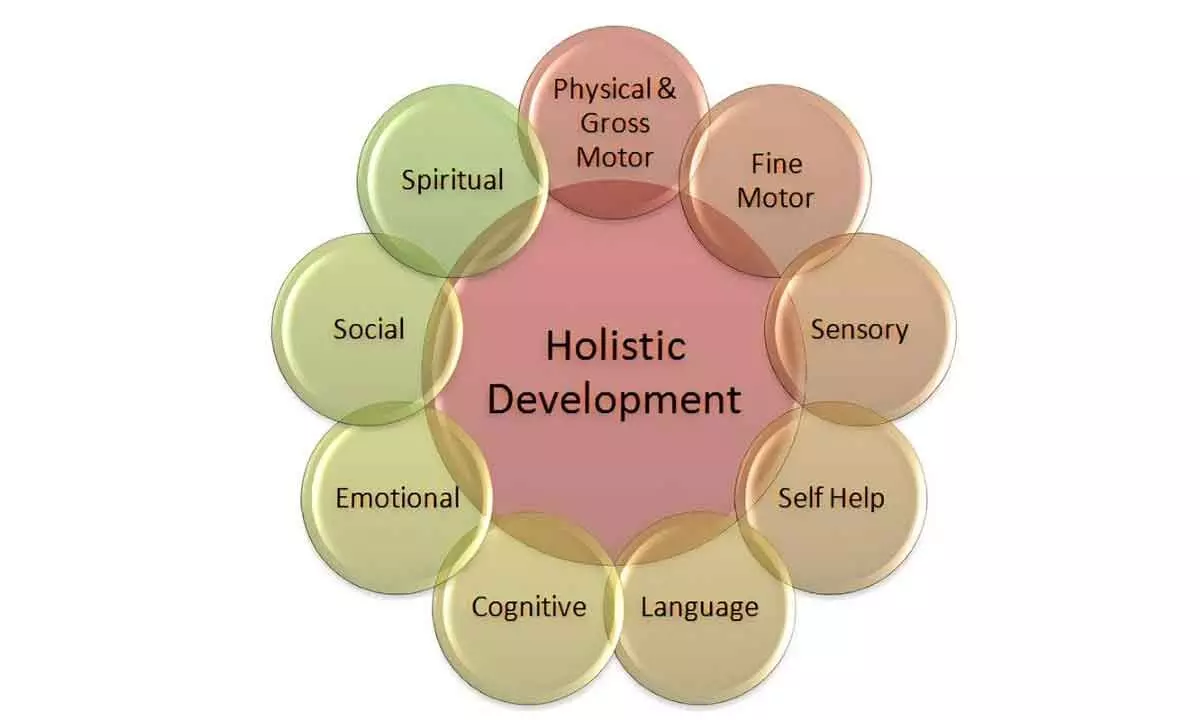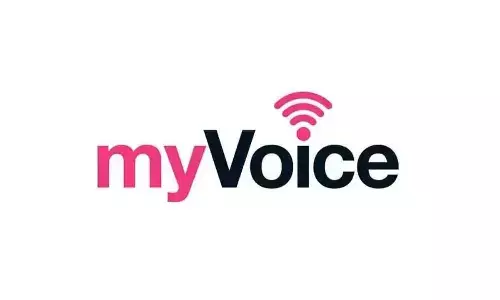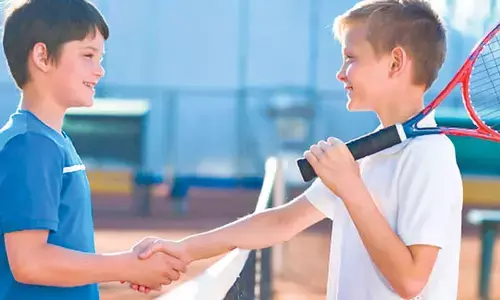Incorporating holistic development at an early age

A holistic development of children to enhance their mental capabilities, curiosity to explore complex subjects such as Artificial Intelligence, Machine Learning or Coding
Simply preparing the younger generation with technical skills might not be the sole answer to the growth of a child's emotional, physical and cognitive abilities. As government policies and educational institutes prepare children to be 'employable', the building blocks of one's personality also requires sharpening physical capabilities as well as creative learning.
Hans India spoke with Kapish Saraf, Founder and Director, KidEx, to explain the impact of a holistic development on children to enhance their mental capabilities, curiosity to explore complex subjects such as Artificial Intelligence, Machine Learning or Coding. Saraf says that the education industry has taken much inspiration from the National Education Policy 2020 on the future employable themes, but one must not forget to add in extracurricular activities as a breather for the school-goers.
Explaining the inclusion of extra-curricular activities in the education policy, Saraf said, "If you look at the NEP 2020 document, section 4 of the policy is all about the holistic development of the child. And out of the many things that it says, section 4.35, this is the place where the policy becomes more objective than subjective that every school is required to give holistic development report cards to the students. So far, the focus has been on providing an academic report card all these years. As a company, what we have done is put together a team of researchers to develop a holistic development framework for the age of 3 years to 17 years."
Saraf says that it is important to create age-appropriate development milestones of an individual of a given age. This includes introducing children to linguistic skills, which can be imported via entertaining activities. In comparison to the older generation, Gen Z to Generation Alpha have incorporated social media into their day-to-day activities, which includes watching YouTube videos, TikTok, Facebook, Instagram and so forth.
Saraf says that students engaged with the app have the provision to sharpen social skills, learn language, play games such as Chess or even learn creative arts and dance forms. The company prepares a profile on the holistic development of a student which can be downloaded and submitted at the school. The portal also gives the option for self-assessment, peer-to-peer assessment, and access to specialist teachers, if requested by the school.
The KidEx company was formally registered by 2 IIT-IIM graduates, Kapish Saraf and Amritanshu Kumar. Kapish has stated that the company, in 2.5 years, has partnered with 3,200 schools across the country. He believes that complex subjects such as AI, ML or coding can be learnt at an elementary level until someone has internalised a certain level of mathematics, something which most students get a grasp on by the age of 11 or 12 years.
"In reality what every company is doing is exposing the kids to learn, to appreciate technology. Figure out by yourself how to use certain platforms such as plug-and-play coding platforms, or build an AI platform, but it is no different than putting together a jigsaw puzzle. What fundamentally needs to be solved is sharpen the skills of the students who will enter the working class of 2030. Creativity, imagination, problem solving, social skills, and emotional skills, needs to be incorporated," Kapish said.
He believes that one needs to unleash the imagination of a child is the foremost step, post which a student may engage into skills such as creating video games. The company's director has said that his company has been chosen by a government body such as NITI Aayog to conduct their flagship events for school students - Tinkerpreneur and Marathon to promote Innovation and Entrepreneurship across 10,000 schools in India. In March of 2022, Atal Innovation Mission, NITI Aayog announced a partnership with KidEx Venture to leverage the company's technology platform "IKIGAI" to promote innovation and entrepreneurship among school students. In 2021, MeitY along with Google announced a group of 100 Indian startups to turn them into high-quality global apps and games as part of the Appscale Academy, of which KidEx is one of the EdTech companies. He says that to build different levels of extracurricular activities, the company has taken inspiration from the U.S., Australia, European countries and Japan, a global leader in terms of child pedagogical practices. He says there are 96 different components in multidisciplinary areas. The company has claimed that it has over 750 topic specialists empanelled with KidEx.
"You pick any 10 resumes randomly; you will see 60 per cent of the resumes are about co-curricular and extra-curricula's and not about academics. And those are the guys who bag the best jobs on campus (placements)… Once you clear the threshold on academics, the company looks at the interests and likings of a person. Every research says that 100 percent of top performers are on EQ and SQ and not on IQ. For such a long time, we have been hardwired into focusing on academics but the reality is clearing the academic hurdle and finding out who you are as a person," Kapish has said.











